JANUARY
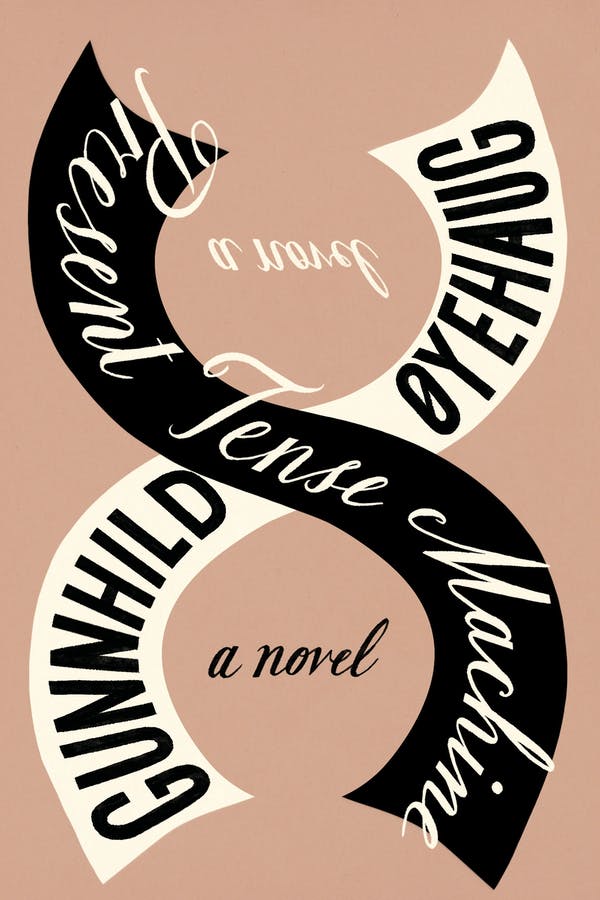 Present Tense Machine by Gunnhild Øyehaug, translated from the Norwegian by Kari Dickson (FSG, January 11)
Present Tense Machine by Gunnhild Øyehaug, translated from the Norwegian by Kari Dickson (FSG, January 11)
On an ordinary day in Bergen, Norway, in the late 1990s, Anna is reading in the garden while her two-year-old daughter, Laura, plays on her tricycle. Then, in one startling moment, Anna misreads a word, an alternate universe opens up, and Laura disappears. Twenty years or so later, life has gone on as if nothing happened, but in each of the women’s lives, something is not quite right. Both Anna and Laura continue to exist, but they are invisible to each other and forgotten in each other’s worlds. Both are writers and amateur pianists. They are married; Anna had two more children after Laura disappeared, and Laura is expecting a child of her own. They worry about their families, their jobs, the climate—and whether this reality is all there is.
 Call Me Cassandra, by Marcial Gala, translated from the Spanish by Anna Kushner (FSG, January 11)
Call Me Cassandra, by Marcial Gala, translated from the Spanish by Anna Kushner (FSG, January 11)
Ten-year-old Rauli lives in a world that is often hostile. His older brother is violent; his philandering father doesn’t understand him; his intelligence and sensitivity do not endear him to the other children at school. He loves to read, especially Greek myths, but in Cuba in the 1970s, novels and gods can be dangerous. Despite the signs that warn Rauli to repress and fear what he is, he knows three things to be true: First, that he was born in the wrong body. Second, that he will die, aged eighteen, as a soldier in the Cuban intervention in Angola. And third, that he is the reincarnation of the Trojan princess Cassandra. Moving between Rauli’s childhood and adolescence, between the Angolan battlefield, the Cuban city of Cienfuegos, and the shores of ancient Troy, Marcial Gala’s Call Me Cassandra tells of the search for identity amid the collapse of Cuba’s utopian dreams. Burdened with knowledge of tragedies yet to come, Rauli nonetheless strives to know himself. Lyrical and gritty, heartbreaking and luminous, Rauli’s is the story of the inexorable pull of destiny.
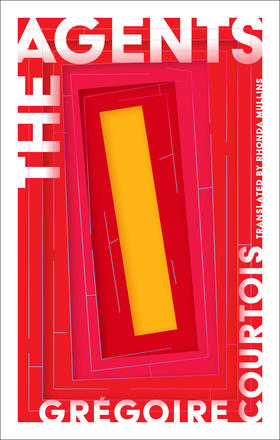 The Agents by Grégoire Courtois, translated from the French by Rhonda Mullins (Coach House Books, January 18)
The Agents by Grégoire Courtois, translated from the French by Rhonda Mullins (Coach House Books, January 18)
Nineteen Eighty-Four meets Tron, via The Office, in this boldly dystopian novel.
The agents don’t know what they’re agents of, but they’re very busy agenting, which means watching endless data feeds in their cubicles, cubicles that are piled one on top of another in a massive tower in which the agents both live and work. Empty floors serve as battlefields where different guilds of agents fight for territory. It seems that defenestration is the only way out, the ‘ballet of suicides.’ It is here we meet Théodore, who has amputated his own toes and must maintain a 30-degree angle to keep his balance. And Solveig, who is pregnant, though agents don’t usually have sex, as well as the artist Lazslo and self-mutilating Clara. And then there’s Hick, the new agent, who seems strangely happy and occupies a cubicle that is strategically very important. The battle for key territory is heating up, and the agents aren’t sure which of them will make it out alive. If, indeed, that’s what any of them want…
FEBRUARY
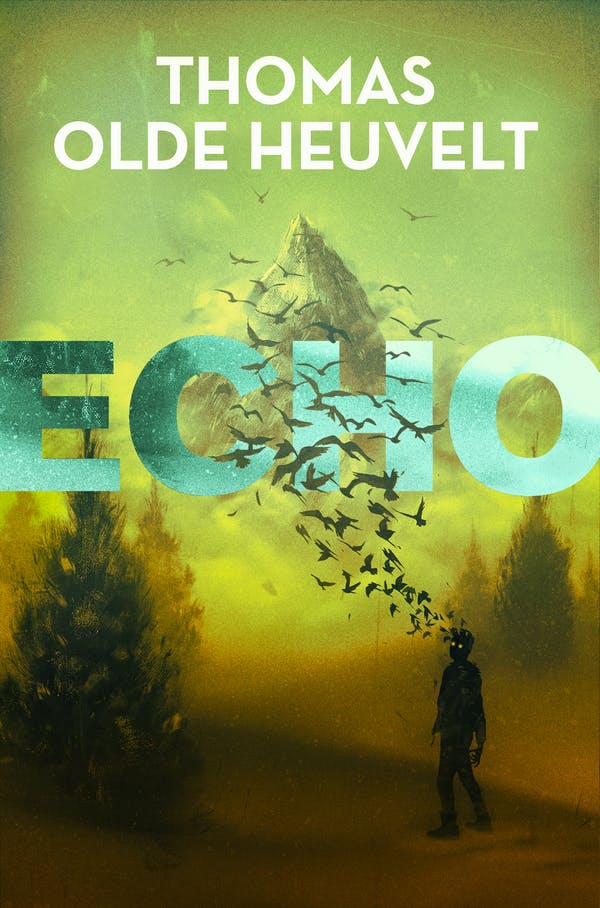 Echo by Thomas Olde Heuvelt, translated from the Dutch by ? (Tor Nightfire, February 8)
Echo by Thomas Olde Heuvelt, translated from the Dutch by ? (Tor Nightfire, February 8)
Travel journalist and mountaineer Nick Grevers awakes from a coma to find that his climbing buddy, Augustin, is missing and presumed dead. Nick’s own injuries are as extensive as they are horrifying. His face wrapped in bandages and unable to speak, Nick claims amnesia—but he remembers everything. He remembers how he and Augustin were mysteriously drawn to the Maudit, a remote and scarcely documented peak in the Swiss Alps. He remembers how the slopes of Maudit were eerily quiet, and how, when they entered its valley, they got the ominous sense that they were not alone. He remembers: something was waiting for them…But it isn’t just the memory of the accident that haunts Nick. Something has awakened inside of him, something that endangers the lives of everyone around him…It’s one thing to lose your life. It’s another to lose your soul.
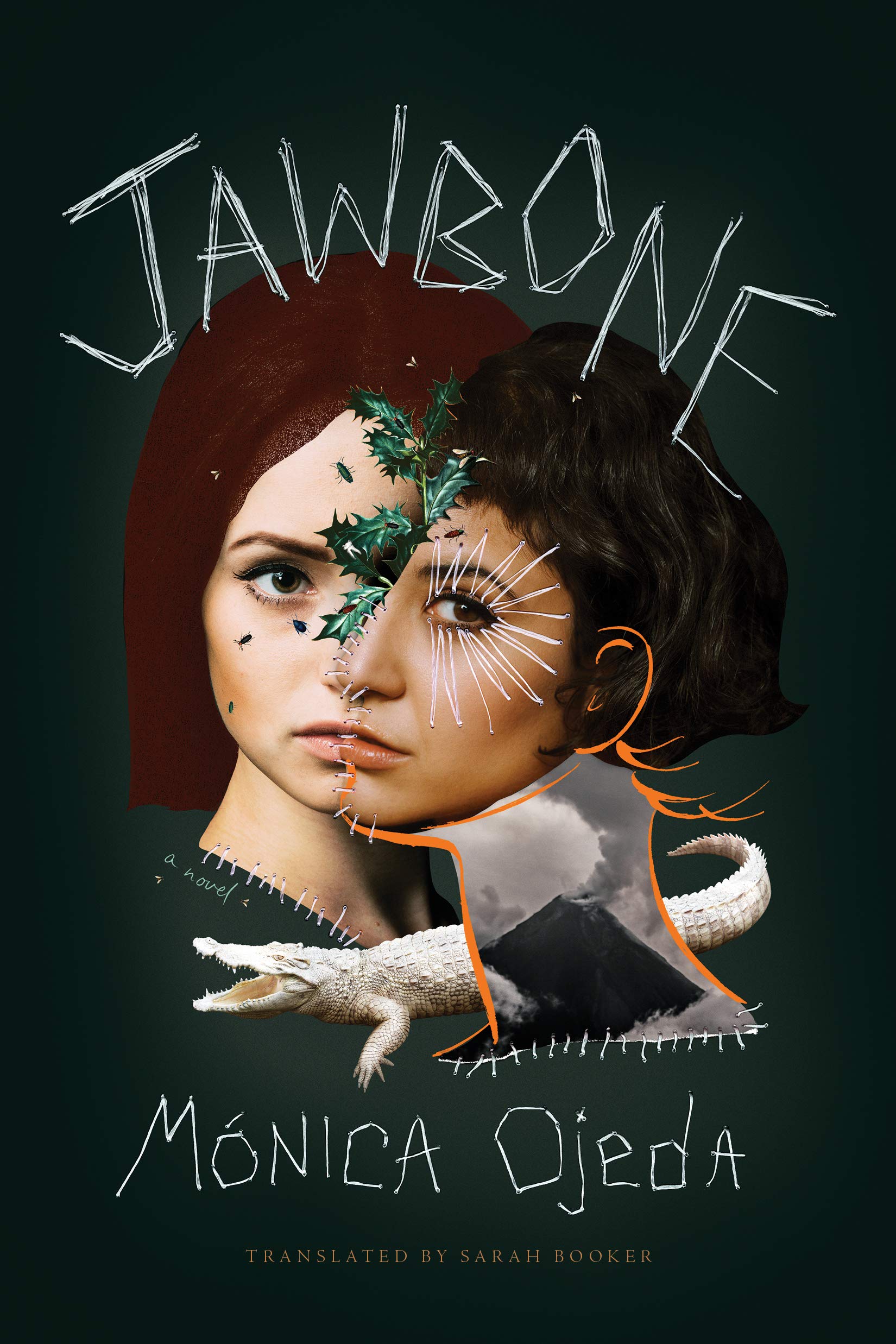 Jawbone by Mónica Ojeda, translated from the Spanish by Sarah Booker (Coffee House Press, February 8)
Jawbone by Mónica Ojeda, translated from the Spanish by Sarah Booker (Coffee House Press, February 8)
Fernanda and Annelise are so close they are practically sisters: a double image, inseparable. So how does Fernanda end up bound on the floor of a deserted cabin, held hostage by one of her teachers and estranged from Annelise?
When Fernanda, Annelise, and their friends from the Delta Bilingual Academy convene after school, Annelise leads them in thrilling but increasingly dangerous rituals to a rhinestoned, Dior-scented, drag-queen god of her own invention. Even more perilous is the secret Annelise and Fernanda share, rooted in a dare in which violence meets love. Meanwhile, their literature teacher Miss Clara, who is obsessed with imitating her dead mother, struggles to preserve her deteriorating sanity. Each day she edges nearer to a total break with reality.
Interweaving pop culture references and horror concepts drawn from Herman Melville, H. P. Lovecraft, and anonymous “creepypastas,” Jawbone is an ominous, multivocal novel that explores the terror inherent in the pure potentiality of adolescence and the fine line between desire and fear.
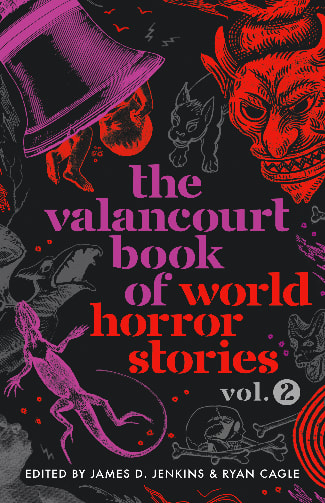 The Valancourt Book of World Horror Stories, Volume Two, edited by James D. Jenkins and Ryan Cagle (Valancourt Books, February 15)
The Valancourt Book of World Horror Stories, Volume Two, edited by James D. Jenkins and Ryan Cagle (Valancourt Books, February 15)
Critics called the first Valancourt Book of World Horror Stories “groundbreaking” (Publishers Weekly), “stellar from top to bottom” (Library Journal), “pioneering” (Washington Post), “a veritable feast for horror lovers” (British Fantasy Society). Now for this exciting follow-up volume the editors have expanded their search to even more countries, finding more of the world’s best horror fiction and making it available to American readers for the first time. Featuring a wide variety of tales from Brazil to Malta to Nigeria to Japan, and all points in between, this new anthology is a must-have for any horror fan or anyone interested in contemporary world literature.
Luciano Lamberti, ‘The Nature of Love’ (Argentina)
Roberto Causo, ‘Train of Consequences’ (Brazil)
Braulio Tavares, ‘Screamer’ (Brazil)
Yavor Tsanev, ‘The Recording of the Will’ (Bulgaria)
Zhang Yueran, ‘Whitebone Spirit’ (China)
Teddy Vork, ‘The Wonders of the Invisible World’ (Denmark)
Indrek Hargla, ‘The Grain Dryer of Tammõküla’ (Estonia)
Mélanie Fazi, ‘Dreams of Ash’ (France)
Konstantinos Kellis, ‘Firstborn’ (Greece)
Gary Victor, ‘Lucky Night’ (Haiti)
Steinar Bragi, ‘The Bell’ (Iceland)
Jayaprakash Satyamurthy, ‘Shelter from the Storm’ (India)
Stephan Friedman, ‘The Pallid Eidolon” (Israel)
Yasumi Tsuhara, ‘The Old Wound and the Sun’ (Japan)
Anton Grasso, ‘The Ant’ (Malta)
Dare Segun Falowo, ‘Owolabi Olowolagba’ (Nigeria)
Wojciech Gunia, ‘The War’ (Poland)
Ana María Fuster Lavín, ‘Footsteps of Hunger’ (Puerto Rico)
Val Votrin, ‘The Regensburg Festival’ (Russia)
Bora Chung, ‘Mask’ (South Korea)
Viola Cadruvi, ‘The Runner’ (Switzerland)
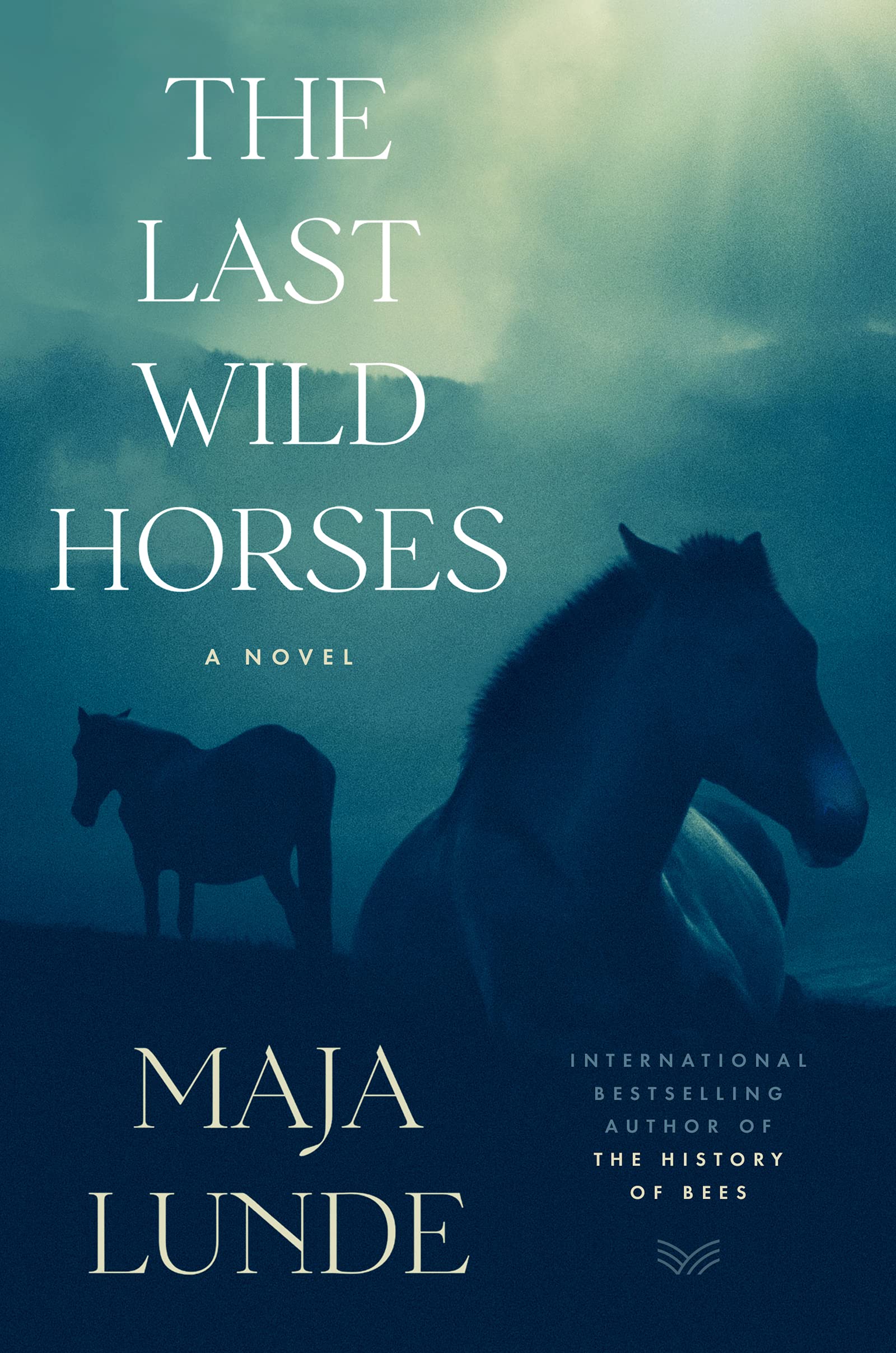 The Last Wild Horses by Maja Lunde, translated from the Norwegian by Diane Oatley (HarperVia, February 15)
The Last Wild Horses by Maja Lunde, translated from the Norwegian by Diane Oatley (HarperVia, February 15)
Mikhail lives in Russia in 1881. When a skeleton of a rare wild horse is brought to him, the zoologist plans an expedition to Mongolia to find the fabled Przewalski horse, a journey that tests not only his physicality, but his heart.In 1992, Karin, alongside her troubled son Mathias and several Przewalski horses, travels to Mongolia to re-introduce the magnificent horses to their native land. The veterinarian has dedicated her life to saving the breed from extinction, prioritizing the wild horses, even over her own son. Europe’s future is uncertain in 2064, but Eva is willing to sacrifice nearly everything to hold onto her family’s farm. Her teenage daughter implores Eva to leave the farm and Norway, but a pregnant wild mare Eva is tending is about to foal. Then, a young woman named Louise unexpectedly arrives on the farm, with mysterious intentions that will either bring them all together, or devastate them one by one. Spanning continents and centuries, The Last Wild Horses is a powerful tale of survival and connection—of humans, animals, and the indestructible bonds that unite us all.
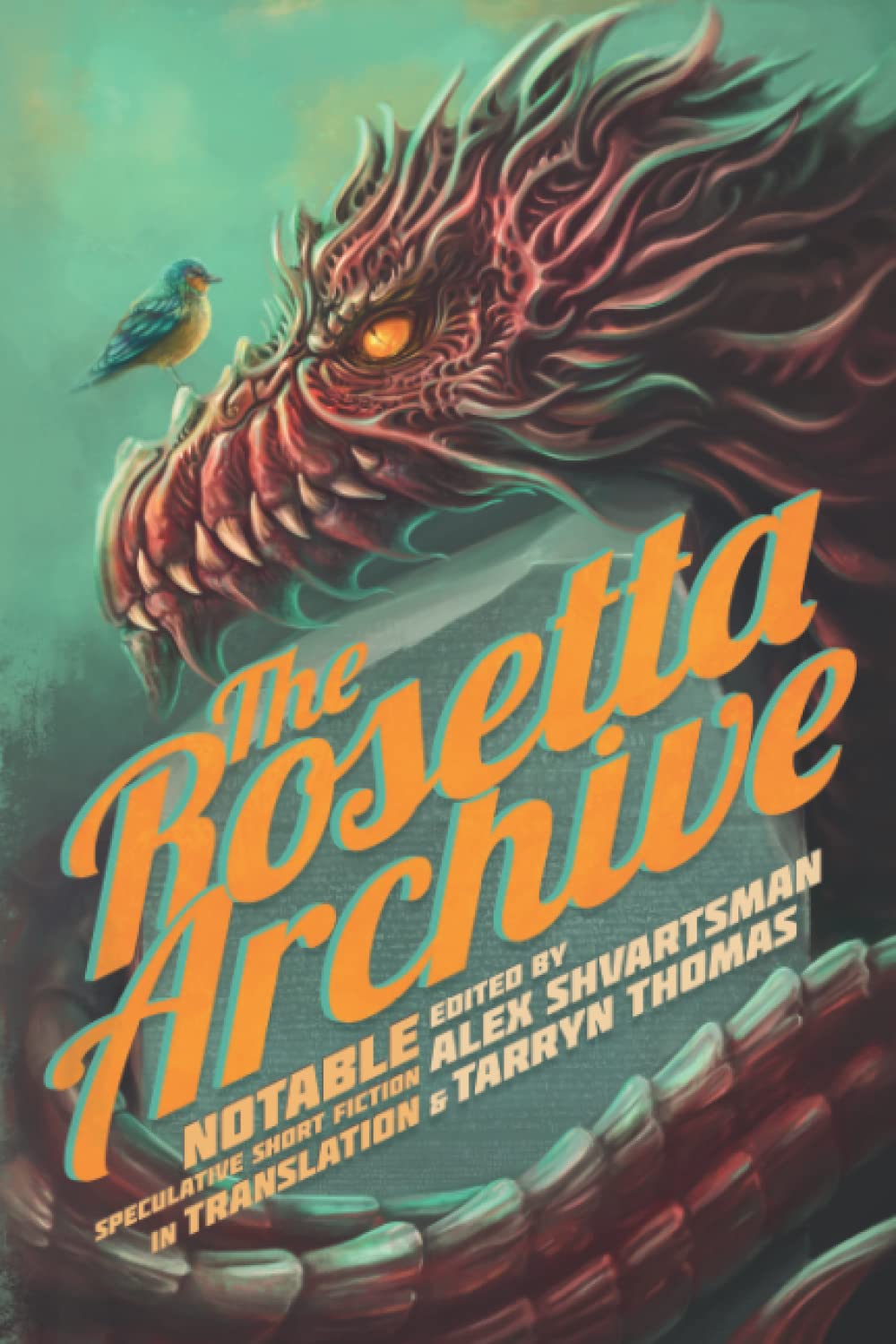 The Rosetta Archive: Notable Speculative Short Fiction in Translation, eds. Alex Shvartsman and Tarryn Thomas (UFO Publishing, February 26)
The Rosetta Archive: Notable Speculative Short Fiction in Translation, eds. Alex Shvartsman and Tarryn Thomas (UFO Publishing, February 26)
A selection of notable science fiction, fantasy, and horror stories, which were translated into and first published in English in 2020. This anthology features the winning entry and the stories shortlisted for the Science Fiction and Fantasy Rosetta Awards.
“Roesin” by Wu Guan, translated from the Chinese by Judith Huang
“Whale Snows Down” by Kim Bo-Young, translated from the Korean by Sophie Bowman
“The Green Hills of Dimitry Totzkiy” by Eldar Safin, translated from the Russian by Alex Shvartsman
“Raising Mermaids” by Dai Da, translated from the Chinese by S. Qiouyi Lu
“Mater Tenebrarum” by Pilar Pedraza, translated from the Spanish by James D. Jenkins
“Vik from Planet Earth” by Yevgeny Lukin, translated from the Russian by Mike Olivson
“Biography of Algae” by Martha Riva Palacio Obón, translated from the Spanish by Will Morningstar
“The Post-Conscious Age” by Su Min, translated from the Chinese by Nathan Faries
“Just Like Migratory Birds” by Taiyo Fujii, translated from the Japanese by Emily Balistrieri
“The Witch Dances” by Thiago Ambrósio Lage, translated from the Portuguese by Iana Araújo
“Formerly Slow” by Wei Ma, translated from the Chinese by Andy Dudak
“Menopause” by Flore Hazoumé, translated from the French by James D. Jenkins
“The Mole King” by Marie Hermanson, translated from the Swedish by Charlie Haldén
“The Ancestral Temple in a Box” by Chen Qiufan, translated from the Chinese by Emily Jin
“No One Ever Leaves Port Henri” by K.A. Teryna, translated from the Russian by Alex Shvartsman
“Cousin Entropy” by Michèle Laframboise, translated from the French by N. R. M. Roshak
“The Curtain Falls, The Show Must End” by Julie Nováková, translated from the Czech by the author
MARCH
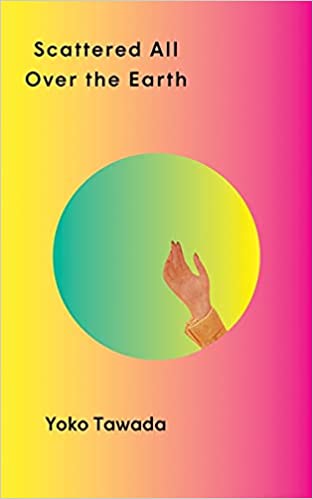 Scattered All Over the Earth by Yoko Tawada, translated from the Japanese by Margaret Mitsutani (New Directions, March 1)
Scattered All Over the Earth by Yoko Tawada, translated from the Japanese by Margaret Mitsutani (New Directions, March 1)
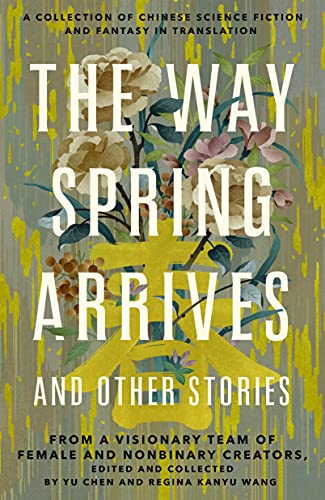 The Way Spring Arrives and Other Stories: A Collection of Chinese Science Fiction and Fantasy in Translation, edited by Yu Chen and Regina Kanyu Wang (Tordotcom, March 8)
The Way Spring Arrives and Other Stories: A Collection of Chinese Science Fiction and Fantasy in Translation, edited by Yu Chen and Regina Kanyu Wang (Tordotcom, March 8)
In The Way Spring Arrives and Other Stories, you can dine at a restaurant at the end of the universe, cultivate to immortality in the high mountains, watch roses perform Shakespeare, or arrive at the island of the gods on the backs of giant fish to ensure that the world can bloom. These stories have never before been published in English and represent both the richly complicated past and the vivid future of Chinese science fiction and fantasy. Time travel to a winter’s day on the West Lake, explore the very boundaries of death itself, and meet old gods and new heroes in this stunning new collection.
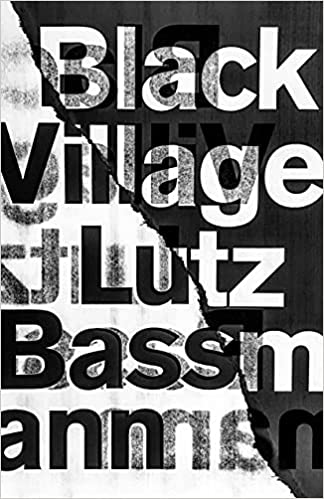 Black Village by Lutz Bassmann, translated from the French by Jeffrey Zuckerman (Open Letter, March 15)
Black Village by Lutz Bassmann, translated from the French by Jeffrey Zuckerman (Open Letter, March 15)
Tassili, Goodmann, and Myriam. Two men and a woman dressed in rags–former poets, and former members of a dystopian military service–walk the bardo, the dark afterlife between death and rebirth. The road is monotonous and seemingly endless. To pass the time, they decide to tell each other stories: bizarre anecdotes set in a post-apocalyptic world, replete with mutant creatures, Buddhist monks, and ruthless killers. The result is a mysterious, dreamlike series of events, trapped outside of time as we know it, where all the rules of narrative are upended and remade. Lutz Bassmann is one of the heteronyms of French author Antoine Volodine. Black Village gives readers of science fiction and experimental literature another exciting look into “post-exoticism,” one of the most ambitious and original projects in contemporary literature.
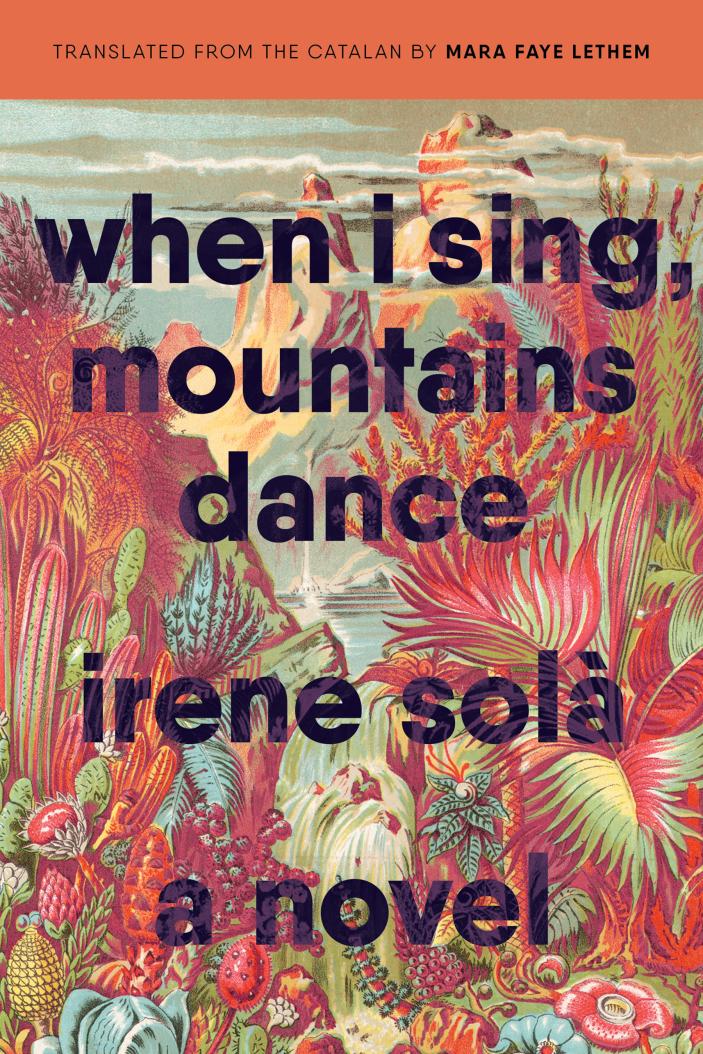 When I Sing, Mountains Dance by Irene Solà, translated from the Catalan by Mara Faye Lethem (Graywolf Press, March 15)
When I Sing, Mountains Dance by Irene Solà, translated from the Catalan by Mara Faye Lethem (Graywolf Press, March 15)
Near a village high in the Pyrenees, Domènec wanders across a ridge, fancying himself more a poet than a farmer, to “reel off his verses over on this side of the mountain.” He gathers black chanterelles, attends to a troubled cow. And then storm clouds swell, full of electrifying power. Reckless, gleeful, they release their bolts of lightning, one of which strikes Domènec. He dies. The ghosts of seventeenth-century witches gather around him, taking up the chanterelles he’d harvested before going on their merry ways. So begins this novel that is as much about the mountains and the mushrooms as it is about the human dramas that unfold in their midst.
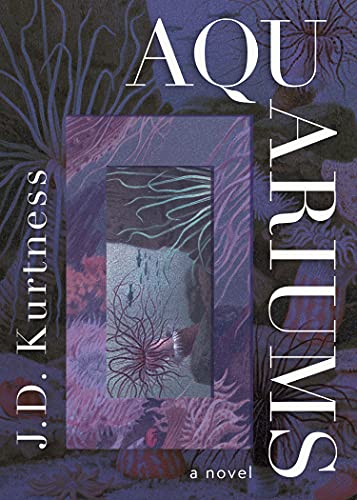 Aquariums by J. D. Kurtness, translated from the French by Pablo Strauss (Dundurn Books, March 29)
Aquariums by J. D. Kurtness, translated from the French by Pablo Strauss (Dundurn Books, March 29)
With the world’s oceans ravaged by climate change, Émeraude, a young marine biologist, works to preserve aquatic ecosystems by recreating them for zoos. When her work earns her a spot aboard a research vessel with an extended mission in the Arctic, it is the inescapable draw of the ocean that will save her when the world she leaves behind is irrevocably changed.
Stories of Émeraude’s ancestors — a young sailor abandoned at birth, a conjuror who mixes potions for her neighbours, a violent young man who hides in the woods to escape an even more violent war, and a talented young singer born to a mother who cannot speak — weave their way through her intimate reflections on a modest life, unknowingly shaped by those who came before.
APRIL
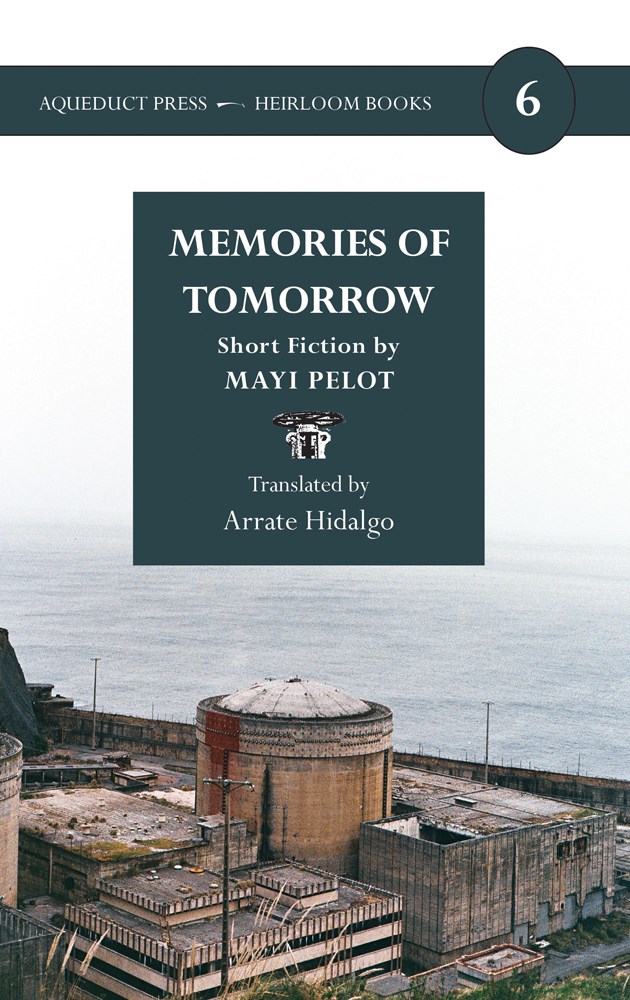 Memories of Tomorrow by Mayi Pelot, translated from the Basque by Arrate Hidalgo (Aqueduct Press, April 1)
Memories of Tomorrow by Mayi Pelot, translated from the Basque by Arrate Hidalgo (Aqueduct Press, April 1)
Memories of Tomorrow collects a set of vibrant and enigmatic visions that emanated from one of the most creative minds of contemporary Basque literature. Often unnoticed by the established canon, Mayi Pelot has been uncovered and championed in recent years as one of the first genre authors in the language. Her publications, despite their brief span—from 1982 to 1992—undeniably laid the groundwork for future generations of Basque science fiction writers.
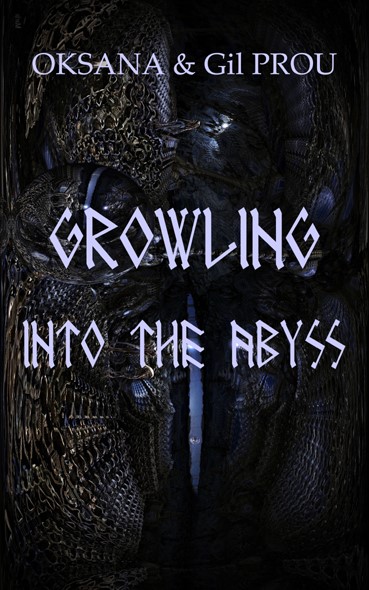 Growling into the Abyss by Oksana & Gil Prou, translated from the French by Sheryl Curtis (Black Coat Press, April 1)
Growling into the Abyss by Oksana & Gil Prou, translated from the French by Sheryl Curtis (Black Coat Press, April 1)
A few minutes before Konvent steps onto the Copenhell stage, a section of the ground caves in behind the crowd of Metal enthusiasts. The young Danish women’s powerful Deathdoom attracts thousands of fans who rejoice and shout as they listen to Rikke’s cavernous voice, Julie’s and Heidi’s hypnotic beat, and Sara’s guitar riffs. Pushed by an invisible force, the musicians and the singer approach the giant cavity. A mind-blowing, underground odyssey starts then. The battles will be tough. The four young women will have to fight against sound tsunamis. The telluric power of their music will be their only weapon for defeating monsters lurking in the heart of the shadows. A Duel of Titans, this war will end with Growling into the Abyss.
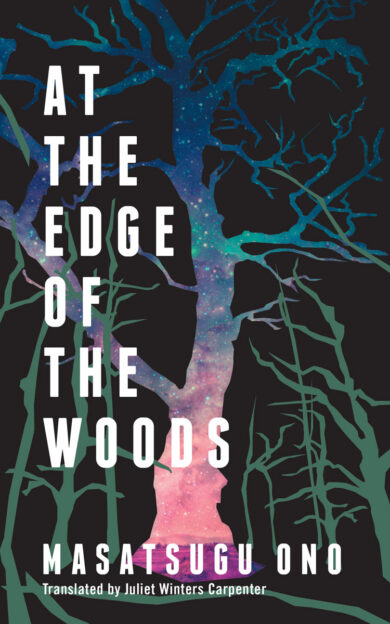 At the Edge of the Woods by Masatsugu Ono, translated from the Japanese by Juliet Winters Carpenter (Two Lines Press, April 12)
At the Edge of the Woods by Masatsugu Ono, translated from the Japanese by Juliet Winters Carpenter (Two Lines Press, April 12)
In an unnamed foreign country, a family of three is settling into a house at the edge of the woods. But something is off. A sound, at first like coughing and then like laughter, emanates from the nearby forest. Fantastical creatures, it is said, live out there in a castle where feudal lords reigned and Resistance fighters fell. When the mother, fearing another miscarriage, returns to her family’s home to give birth to a second child, father and son are left to their own devices in rural isolation. Haunted by the ever-present woods, they look on as the TV flashes with floods and processions of refugees. The boy brings a mysterious half-naked old woman home, but before the father can make sense of her presence, she disappears. A mail carrier with gnashing teeth visits to deliver nothing but gossip of violence. A tree stump in the yard refuses to die, no matter how generously the poison is applied. An allegory for alienation and climate catastrophe unlike any other, At the Edge of the Woods is a psychological tale where myth and fantasy are not the dominion of childhood innocence but the poison fruit borne of the paranoia and violence of contemporary life.
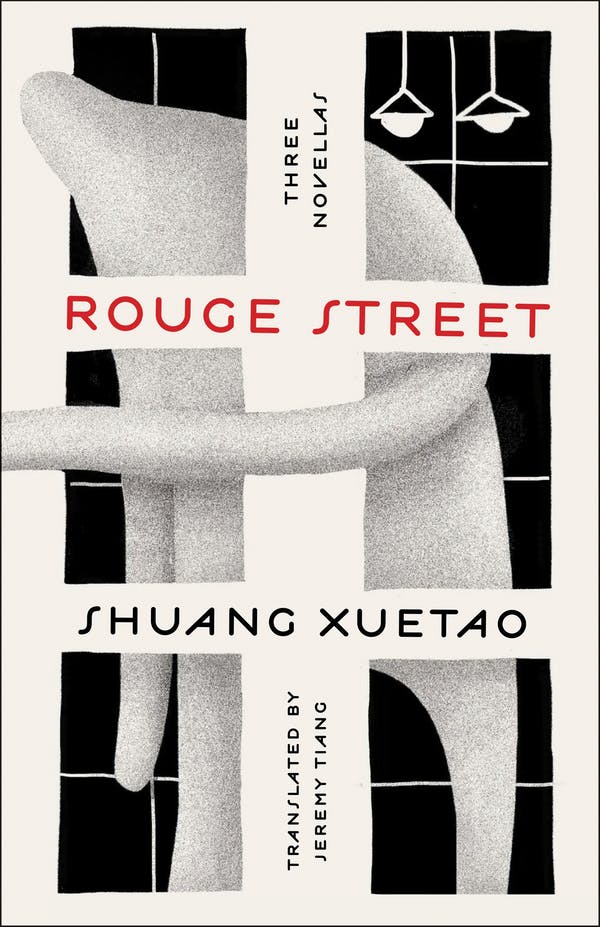 Rouge Street: Three Novellas by Shuang Xuetao, translated from the Chinese by Jeremy Tiang (Metropolitan Books, April 19)
Rouge Street: Three Novellas by Shuang Xuetao, translated from the Chinese by Jeremy Tiang (Metropolitan Books, April 19)
An inventor dreams of escaping his drab surroundings in a flying machine. A criminal, trapped beneath a frozen lake, fights a giant fish. A strange girl pledges to ignite a field of sorghum stalks. Rouge Street presents three novellas by Shuang Xuetao, the lauded young Chinese writer whose frank, fantastical short fiction has already inspired comparisons to Ernest Hemingway and Haruki Murakami. Located in China’s frigid Northeast, Shenyang, the author’s birthplace, boasts an illustrious past—legend holds that the emperor’s makeup was manufactured here. But while the city enjoyed renewed importance as an industrial hub under Mao Zedong, China’s subsequent transition from communism to a market economy led to an array of social ills—unemployment, poverty, alcoholism, domestic violence, divorce, suicide—that gritty Shenyang epitomizes. Orbiting the toughest neighborhood of a postindustrial city whose vast, inhospitable landscape makes every aspect of life a struggle, these many-voiced missives are united by Shuang Xuetao’s singular style—one that balances hardscrabble naturalism with the transcendent and faces the bleak environs with winning humor. Rouge Street illuminates not only the hidden pains of those left behind in an extraordinary economic boom but also the inspirations and grace they, nevertheless, manage to discover
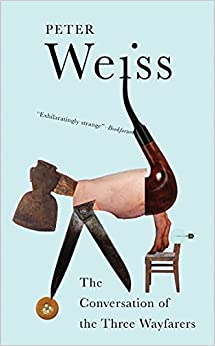 Conversation of the Three Wayfarers by Peter Weiss, translated by E.B. Garside (New Directions, April 22)
Conversation of the Three Wayfarers by Peter Weiss, translated by E.B. Garside (New Directions, April 22)
Conversation of the Three Wayfarers is a tale overheard, rather than told directly. Abel, Babel, and Cabel, the wayfarers, carry on a three-sided monologue, each reporting curious incidents—the effect is of three capers rolled into one: a steeplechase performed on a floating pontoon. But are they really three distinct individuals? Why do their lives blend in such a fantastic manner? Weiss’s strikingly original prose has an impossibly contained quality, with each sentence doing a perfect double-double backflip before neatly landing. This essential rediscovered work, from the masterful and acclaimed German modernist Peter Weiss, will be a delightful discovery for readers of Kafka, Musil, and Gombrowicz.
MAY
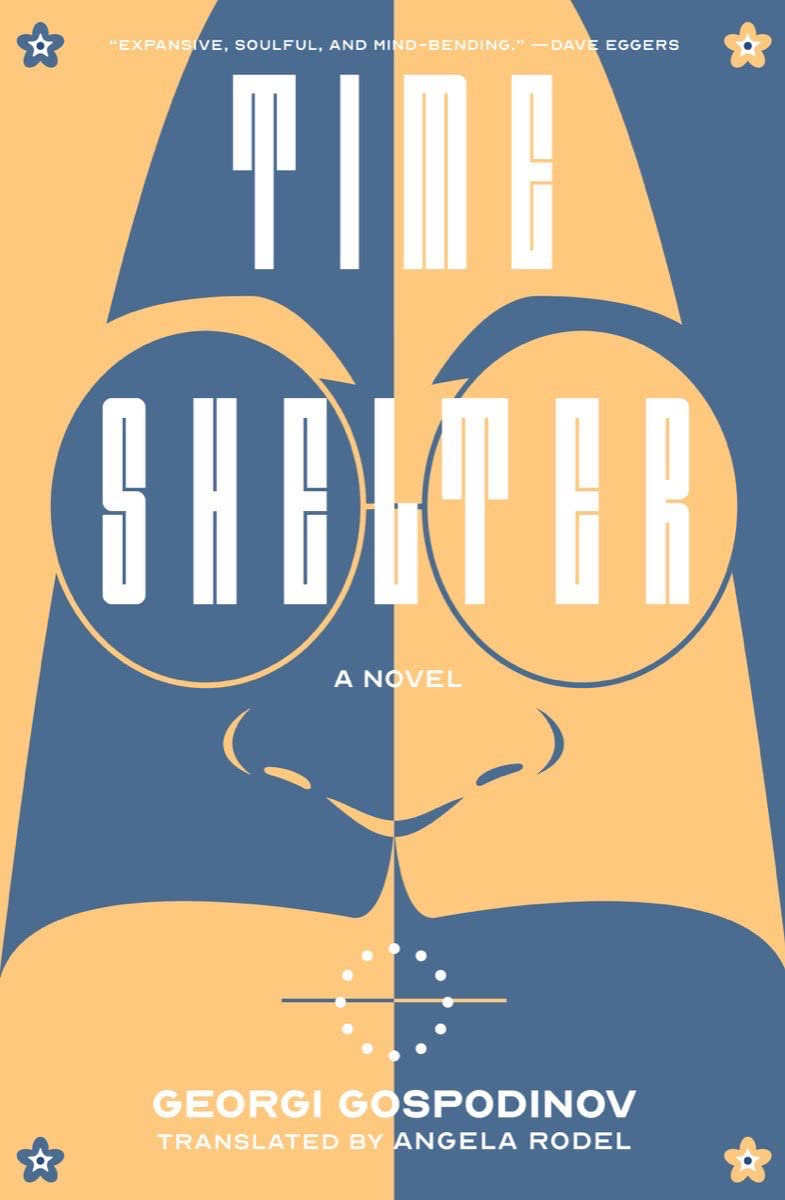 Time Shelter by Georgi Gospodinov, translated from the Bulgarian by Angela Rodel (Liveright, May 10).
Time Shelter by Georgi Gospodinov, translated from the Bulgarian by Angela Rodel (Liveright, May 10).
In an apricot-colored building in Zurich, surrounded by curiously planted forget-me-nots, Gaustine has opened the first “clinic for the past,” an institution that offers an inspired treatment for Alzheimer’s sufferers: each floor reproduces a past decade in minute detail, allowing patients to transport themselves back in time to unlock what is left of their fading memories. Serving as Gaustine’s assistant, the narrator is tasked with collecting the flotsam and jetsam of the past, from 1960s furniture and 1940s shirt buttons to nostalgic scents and even wisps of afternoon light. But as the charade becomes more convincing, an increasing number of healthy people seek out the clinic to escape from the dead-end of their daily lives—a development that results in an unexpected conundrum when the past begins to invade the present. Through sharply satirical, labyrinth-like vignettes reminiscent of Italo Calvino and Franz Kafka, the narrator recounts in breathtaking prose just how he became entrenched in a plot to stop time itself.
 The Shining Sea by Suzuki Koji, translated from the Japanese by Brian Bergstrom (Vertical, May 31).
The Shining Sea by Suzuki Koji, translated from the Japanese by Brian Bergstrom (Vertical, May 31).
A young woman who attempted suicide by drowning has lost her memory and ability to speak. Her lover, a young man, is on a pelagic tuna fishing boat. What happened between them?
Nobody knows their own destiny. But what if you discover you only have a low chance of being happy in life?
From renowned author Koji Suzuki, the creator of the Ring series..
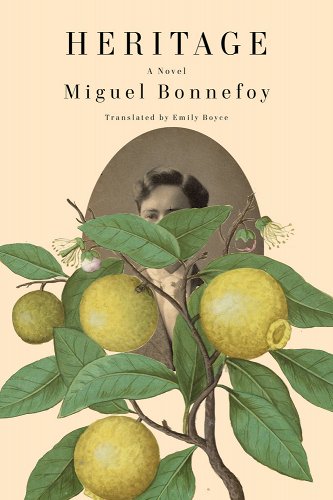 Heritage by Miguel Bonnefoy, translated from the French by Emily Boyce (Other Press, May 31).
Heritage by Miguel Bonnefoy, translated from the French by Emily Boyce (Other Press, May 31).
A dazzling family saga, brimming with poetry and passion, that skillfully weaves together the private lives of individuals and major historical events in South America and Europe.
JUNE
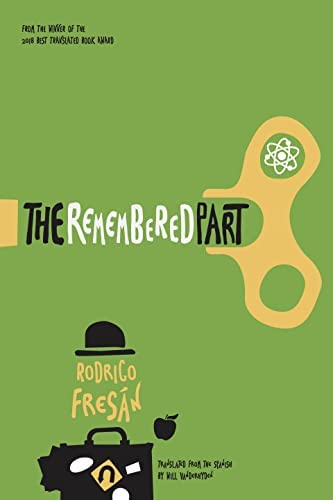 The Remembered Part by Rodrigo Fresán, translated from the Spanish by Will Vanderhyden (Open Letter, June 14).
The Remembered Part by Rodrigo Fresán, translated from the Spanish by Will Vanderhyden (Open Letter, June 14).
With mordant wit, capacious intelligence, and vertiginous prose, The Remembered Part closes Rodrigo Fresán’s sprawling tryptic novel. A novel that has at its heart the three component parts of literary creation, the engines that drive the writing of fictional lives and the narration of real works of art: invention, dream, and memory. It is a masterpiece by one of contemporary literature’s most daring and innovative writers.
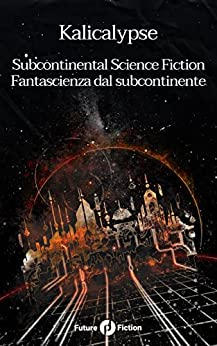 Kalicalypse: Subcontinental Science Fiction, eds. Tarun K. Saint, Bodhisattva Chattopadhyay, and Francesco Verso (Future Fiction, June 23).
Kalicalypse: Subcontinental Science Fiction, eds. Tarun K. Saint, Bodhisattva Chattopadhyay, and Francesco Verso (Future Fiction, June 23).
Dual language edition English – Italian
Kalicalypse brings together recent stories of talented SF writers from Sri Lanka, Pakistan, Bangladesh and India, widening the scope of the previous Future Fiction volume Avatar.
translated stories:
“The New Humans” by Trishna Basak, tr. from the Bengali by Arunava Sinha
“The Almighty” by Md Zafar Iqbal, tr. from the Bengali by Arunava Sinha
JULY
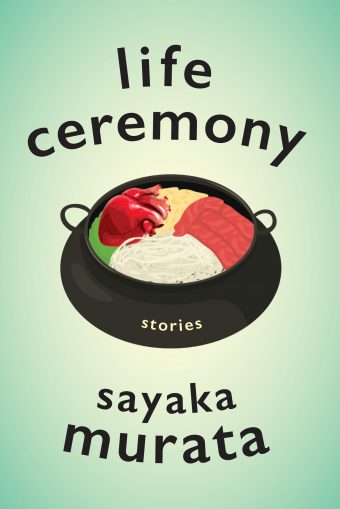 Life Ceremony by Sayaka Murata, translated from the Japanese by Ginny Tapley Takemori (Grove Atlantic, July 5).
Life Ceremony by Sayaka Murata, translated from the Japanese by Ginny Tapley Takemori (Grove Atlantic, July 5).
The long-awaited first short story-collection by the author of the cult sensation Convenience Store Woman, tales of weird love, heartfelt friendships, and the unsettling nature of human existence.
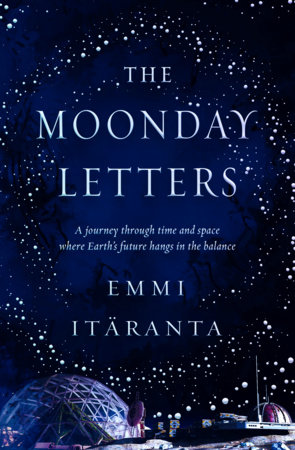 The Moonday Letters by Emmi Itäranta, translated from the Finnish by the author (Titan Books, July 19).
The Moonday Letters by Emmi Itäranta, translated from the Finnish by the author (Titan Books, July 19).
An effortlessly rich and lyrical mystery wrapped in a love story that bends space, time, myth and science, perfect for fans of Octavia Butler and Emily St. John Mandel.
 New Voices in Chinese Science Fiction, eds. Neil Clarke, Xia Jia, Regina Kanyu Wang (Clarkesworld Books, July 22).
New Voices in Chinese Science Fiction, eds. Neil Clarke, Xia Jia, Regina Kanyu Wang (Clarkesworld Books, July 22).
“Science fiction is international in scope, but many works are often unavailable to readers because of language barriers or the costs involved in transcending them. In the eleven years I’ve been publishing science fiction works from China, I’ve had the privilege of working with and featuring stories by both of my co-editors, as well as dozens of other authors. Anthologies and projects like this one are an editor’s joy. We’ve been given the opportunity to shine a light on eight Chinese authors that have not been previously published (at that time) in English. Authors you should know about. New voices, or at least new to you.” —Neil Clarke
AUGUST
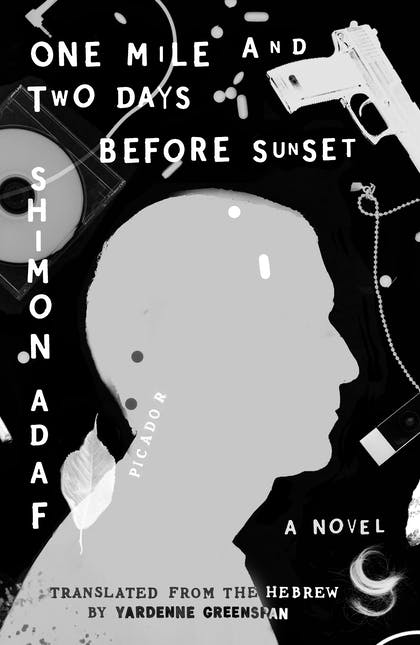 One Mile and Two Days Before Sunset (The Lost Detective Trilogy Vol.1) by Shimon Adaf, translated from the Hebrew by Yardenne Greenspan (Picador, August 2)
One Mile and Two Days Before Sunset (The Lost Detective Trilogy Vol.1) by Shimon Adaf, translated from the Hebrew by Yardenne Greenspan (Picador, August 2)
Who murdered the celebrated rock singer Dalia Shushan? Did controversial philosophy professor Yehuda Menuhin commit suicide or was he murdered? And what is the connection between the two events? These are the questions facing private investigator Elish Ben-Zaken, a former philosophy student, rock music expert and author.
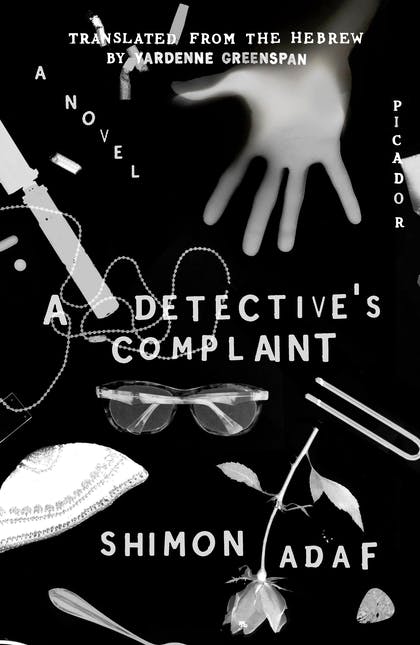 A Detective’s Complaint (The Lost Detective Trilogy Vol.2) by Shimon Adaf, translated from the Hebrew by Yardenne Greenspan (Picador, August 2)
A Detective’s Complaint (The Lost Detective Trilogy Vol.2) by Shimon Adaf, translated from the Hebrew by Yardenne Greenspan (Picador, August 2)
Elish Ben Zaken, Shimon Adaf’s enigmatic hero, has given up working as a private detective and makes his living writing detective novels based on unsolved cases from the past. He appears to live an ordinary, balanced life. But person like Elish can’t get away from his past so easily, especially when his niece Tahel calls on him for help. Tahel, a small child in Adaf’s previous novel, is now a teenager and an apprentice sleuth herself. And she has found a mystery to solve: a young woman gets on a bus in Beersheva on a Thursday evening and gets off in Sderot, close to the Gaza border, on Sunday evening. A bus drive that should have lasted an hour has lasted three days. The young woman remembers nothing – as far as she is concerned, the trip took an hour. In order to help Tahel solve this mystery, Elish moves to Sderot. It is the summer of 2014, and Sderot is at the center of the Israel-Gaza war, filled with fear and hate. For Elish, this is a chance to investigate other issues – the meaning of family and the basic human need to look for mysteries and solve them.
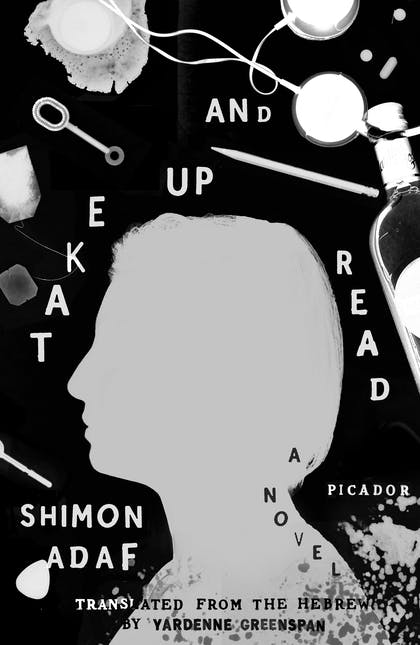 Take Up and Read (The Lost Detective Trilogy Vol.3) by Shimon Adaf, translated from the Hebrew by Yardenne Greenspan (Picador, August 2)
Take Up and Read (The Lost Detective Trilogy Vol.3) by Shimon Adaf, translated from the Hebrew by Yardenne Greenspan (Picador, August 2)
During his investigation into the disappearance of a girl from Sderot in the summer of 2014, an investigation recounted in the previous book in the trilogy, Elish Ben-Zaken meets poet Nahum Farkash. The encounter was brief and at the time did not carry much weight. But, it is in that brief encounter that Elish may have missed the most important clue for his investigation. Fourteen years later, in an Israel that has gone through great changes, the failure of that investigation and its missing pieces continues to haunt the lives of Elish’s niece and nephew, Tahel and Oshri. The story of Nahum Farkash opens this book and the relations between his unexpected character and the events told in the previous books are gradually revealed. Elish, a character that was an enigma from the very first book, becomes the center of the mystery in this closing chapter.
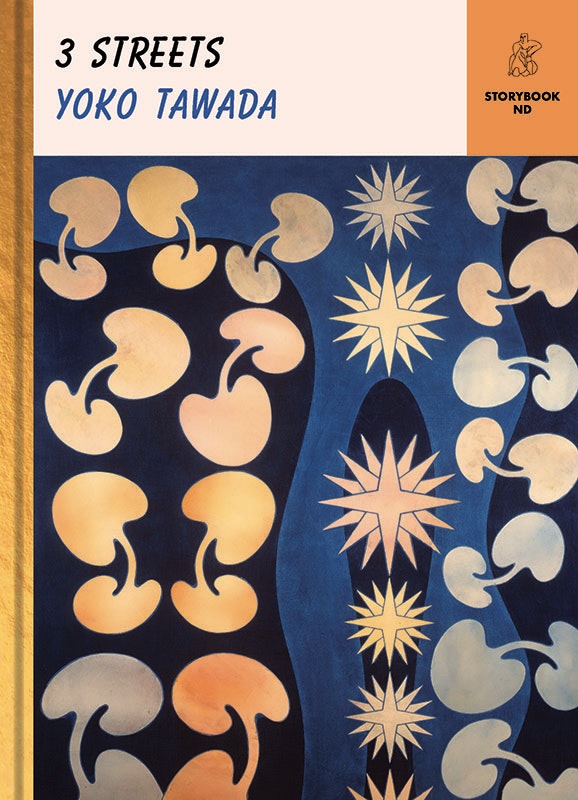 3 Streets by Yoko Tawada, translated from the Japanese by Margaret Mitsutani (New Directions, August 16)
3 Streets by Yoko Tawada, translated from the Japanese by Margaret Mitsutani (New Directions, August 16)
The always astonishing Yoko Tawada here takes a walk on the supernatural side of the street. In “Kollwitzstrasse,” as the narrator muses on former East Berlin’s new bourgeois health food stores, so popular with wealthy young people, a ghost boy begs her to buy him the old-fashioned sweets he craves. She worries that sugar’s still sugar—but why lecture him, since he’s already dead? Then white feathers fall from her head and she seems to be turning into a crane … Pure white kittens and a great Russian poet haunt “Majakowskiring”: the narrator who reveres Mayakovsky’s work is delighted to meet his ghost. And finally, in “Pushkin Allee,” a huge Soviet-era memorial of soldiers comes to life—and, “for a scene of carnage everything was awfully well-ordered.” Each of these stories opens up into new dimensions the work of this magisterial writer.
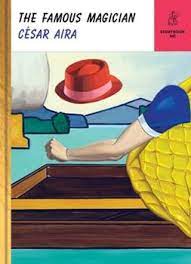 The Famous Magician by César Aira, translated from the Spanish by Chris Andrews (New Directions, August 16)
The Famous Magician by César Aira, translated from the Spanish by Chris Andrews (New Directions, August 16)
A certain writer (“past sixty, enjoying ‘a certain renown’”) strolls through the old book market in a Buenos Aires park: “My Sunday walk through the market, repeated over so many years, was part of my general fantasizing about books.” Unfortunately, he is suffering from writer’s block. However, that proves to be the least of our hero’s problems. In the market, he fails to avoid the insufferable boor Ovando—“a complete loser” but a “man supremely full of himself: Conceit was never less justified.” And yet, is Ovando a master magician? Can he turn sugar cubes into pure gold? And can our protagonist decline the offer Ovando proposes granting him absolute power if the writer never in his life reads another book? And is his publisher also a great magician? And the writer’s wife?
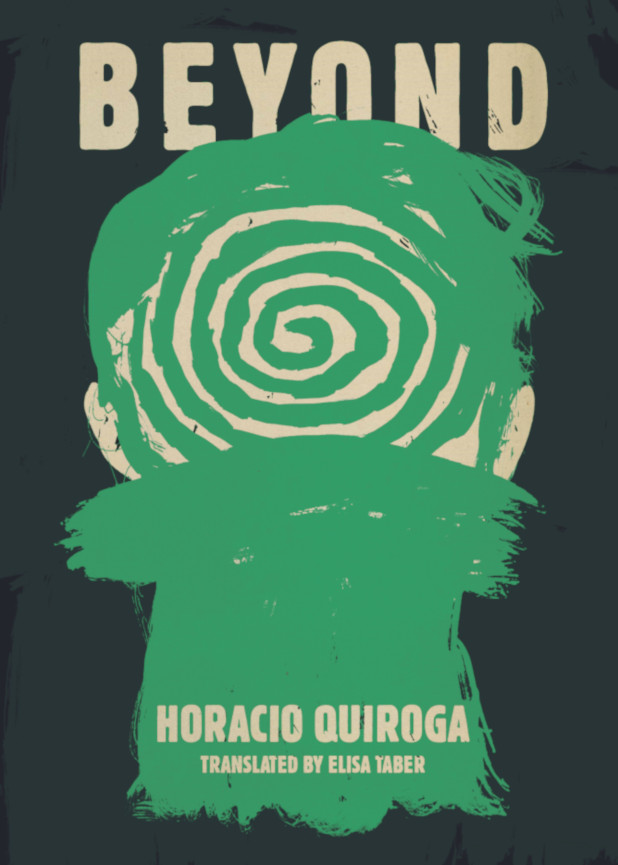 Beyond by Horacio Quiroga, translated by Elisa Taber (Sublunary Editions, August 16)
Beyond by Horacio Quiroga, translated by Elisa Taber (Sublunary Editions, August 16)
As he neared the end of his troubled life, Horacio Quiroga penned a collection of stories that straddle thresholds, the ones between life and death, between sanity and madness, between man and nature. Partly set in the labyrinthine Misiones Jungle and haunted by the suicides of his stepfather, wife, and both his children, the otherworldly grace and human tenderness of these stories juxtapose a violently direct prose. Translated for the first time into English, Beyond (El más allá, 1935) brings readers tantalizingly near to the abysses that lurk just on the other side of everyday experience. Includes: “Beyond”, “The Vampire”, “The Flies”, “The Express Train Conductor”, “The Call”, “The Son”, “His Absence”, “Beauty and the Beast”, “Lady Lioness”, “The Puritan”, and “Sunset”.
SEPTEMBER
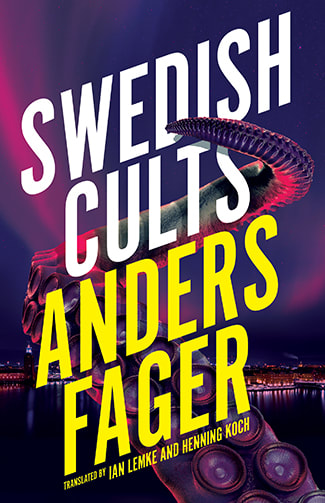 Swedish Cults by Anders Fager, translated from the Swedish by Henning Koch and Ian Lemke (Valancourt Books, September 6)
Swedish Cults by Anders Fager, translated from the Swedish by Henning Koch and Ian Lemke (Valancourt Books, September 6)
Forget everything you think you know about Sweden. In Anders Fager’s stories, Sweden is revealed as a place where dark and unimaginable things happen. Where deep in the woods bloody sacrifices are made to ancient and monstrous deities. Where two young people’s road trip to visit their grandmother takes a turn for the bizarre and nightmarish. Where a woman’s comfortable middle-class life is suddenly upended when her boyfriend develops a mysterious illness that leaves him with a constant erection and speaking in strange tongues. Where an avant garde artist discovers the veil that separates Stockholm from the shadowy city of Carcosa.
OCTOBER
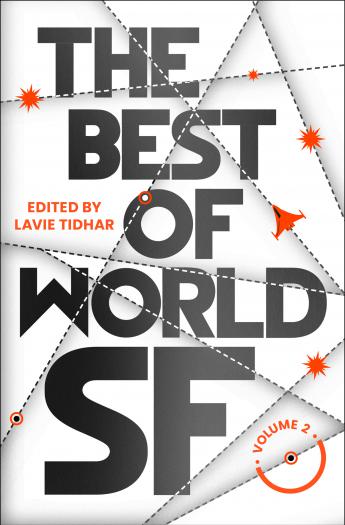 The Best of World SF 2, edited by Lavie Tidhar (Head of Zeus, October 13)
The Best of World SF 2, edited by Lavie Tidhar (Head of Zeus, October 13)
Twenty-nine new short stories representing the state of the art in international science fiction.
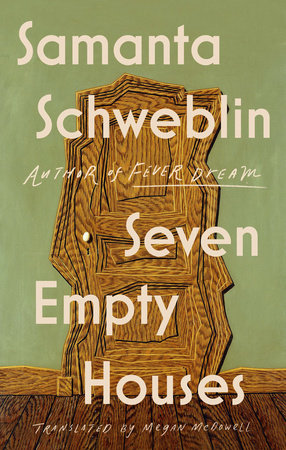 Seven Empty Houses by Samanta Schweblin, translated from the Spanish by Megan McDowell (Riverhead Books, October 18).
Seven Empty Houses by Samanta Schweblin, translated from the Spanish by Megan McDowell (Riverhead Books, October 18).
The seven houses in these seven stories are empty. Some are devoid of love or life or furniture, of people or the truth or of memories. But in Samanta Schweblin’s tense, visionary tales, something always creeps back in: a ghost, a fight, trespassers, a list of things to do before you die, a child’s first encounter with a dark choice or the fallibility of parents. This was the collection that established Samanta Schweblin at the forefront of a new generation of Latin American writers. And now in English it will push her cult status to new heights. Seven Empty Houses is an entrypoint into a fiercely original mind, and a slingshot into Schweblin’s destablizing, exhilarating literary world.
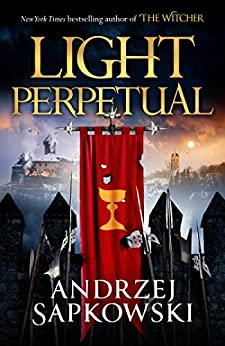 Light Perpetual (Hussite Trilogy: Book 3) by Andrzej Sapkowski, translated from the Polish by David French (Orbit, October 25).
Light Perpetual (Hussite Trilogy: Book 3) by Andrzej Sapkowski, translated from the Polish by David French (Orbit, October 25).
After his adventures in The Tower of Fools and Warriors of God, Reynevan is on the run again, harried by enemies—some human, and some mystical—at every turn. These are cruel and dangerous times for a man such as Reynevan, and to survive, he must set aside his history as a peaceful healer and idealist and play the brutal role of Hussite spy as crusades sweep through Silesia and the Czech Republic, and the world around him is forever changed.
NOVEMBER
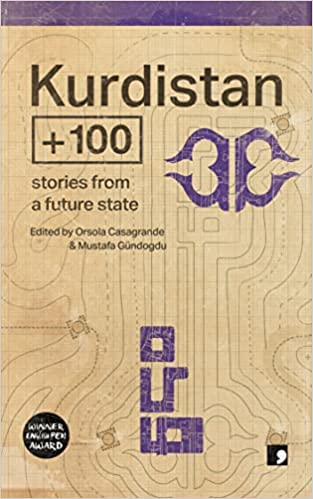 Kurdistan + 100: Stories from a Future State, edited by Orsola Casagrande & Mustafa Gundogdu (Comma Press, November 17).
Kurdistan + 100: Stories from a Future State, edited by Orsola Casagrande & Mustafa Gundogdu (Comma Press, November 17).
Winner of a PEN Translates Award 2021
Kurdistan + 100 poses a question to twelve contemporary Kurdish writers: might the Kurds have a country to call their own by the year 2046 – exactly a century after the last glimmer of independence (the short-lived Kurdish Republic of Mahabad). Or might the struggle for independence have taken new turns and new forms?
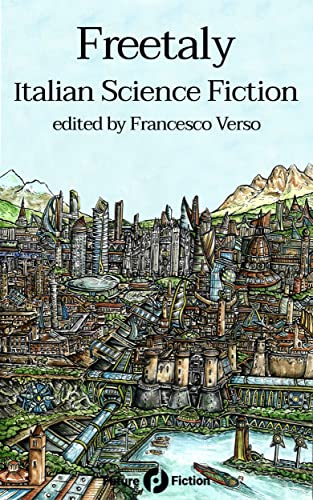 Freetaly: Italian Science Fiction, edited by Francesco Verso (Future Fiction, November 29).
Freetaly: Italian Science Fiction, edited by Francesco Verso (Future Fiction, November 29).
From the otherworldly voyage depicted in Dante’s Divina Commedia and the early modern utopias by Giordano Bruno and Tommaso Campanella, up through the proto-SF of Primo Levi and the Imaginary Fiction of Tommaso Landolfi and Italo Calvino, Italy has always been a cradle of fantastic literature. This anthology highlights the works of award-winning and emerging writers of contemporary Italian science fiction and will introduce international readers to exciting stories they wouldn’t otherwise be able to read. Represented here are some of the winners of the Urania Award (Italy’s most prestigious SF award), authors published by major Italian publishing houses, with stories that explore a wide range of topics, including bio-ethical issues, AI, transhumanism and posthumanism, climate fiction, and environmental concerns. Embrace the Science Fiction Renaissance of Italian literature!
“Beautymark” by Linda De Santi
“The Race of Crows” by Francesco Grasso
“Bad parents” by Andrea Viscusi
“The Catalog of Virgins” by Nicoletta Vallorani
“In bloom” by Clelia Farris
“The Green Ship” by Francesco Verso
“The Love Algorithm” by Michele Piccolino
“Flower Queen” by Romina Braggion
“The Moby Clitoris of His Beloved” by Roberto Quaglia and Ian Watson
“China on the Moon” by Alessandro Fambrini and Stefano Carducci
“Being Oval” by Alessandro Vietti
“Reward” by Francesca Conforti
“Pony and Cow” by Alda Teodorani
